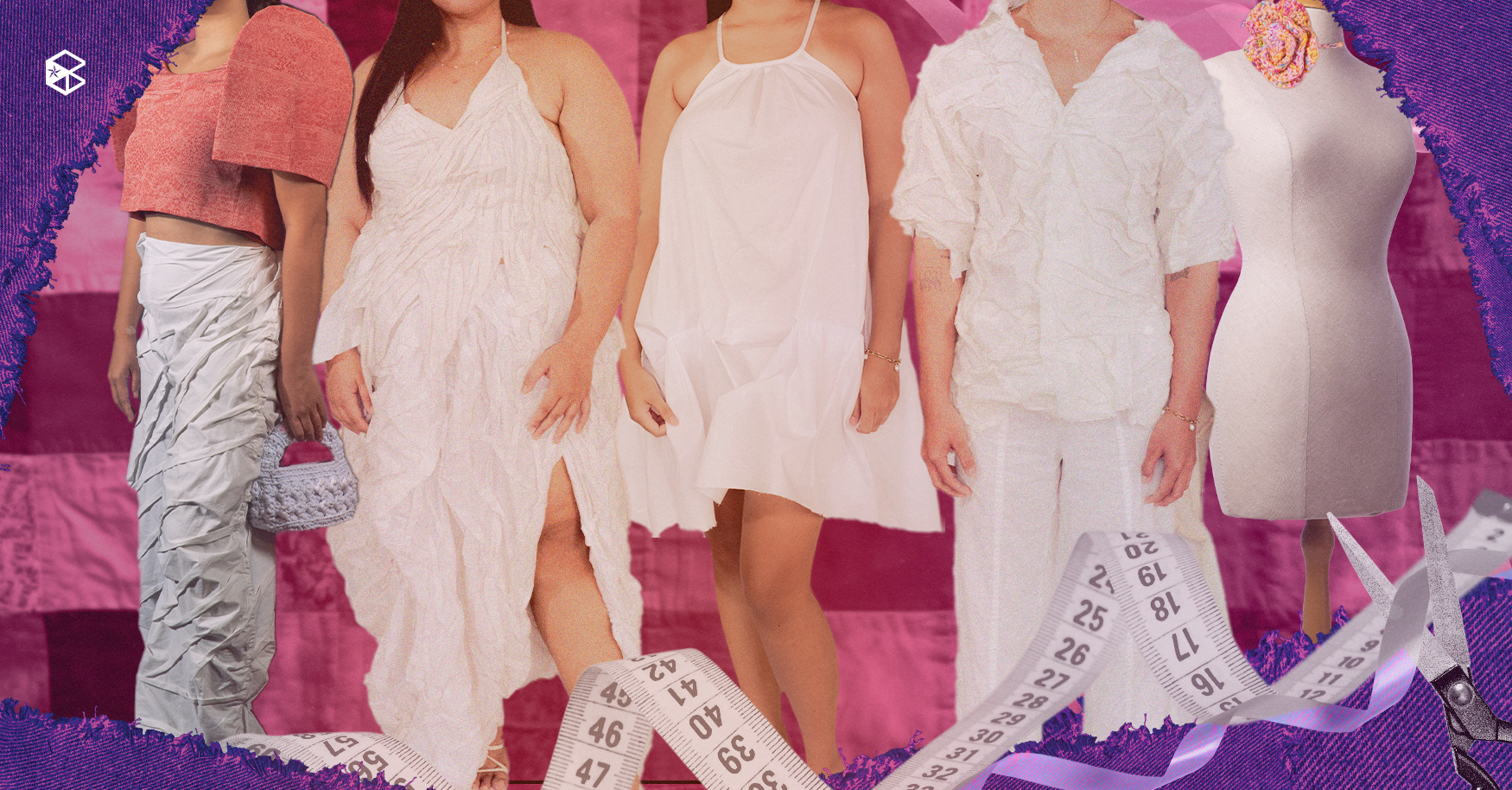Second chances are at the heart of REPAMANA. They repurpose discarded linens from hotels, making them into clothes that empower the wearer—a story that only reveals the tip of the iceberg. Behind each carefully sewn fabric are women deprived of liberty, threading their way towards a better future.
Behind the seams
REPAMANA was originally a thesis project by Darius Juson, ID119, a Fashion Design and Merchandising (AB-FDM) alumnus of the College. His collection motivated other individuals, such as Allesandra Gutierrez, an ID115 AB-FDM graduate, to bring his idea to the world stage.
“[...] When I saw his collection, I felt so inspired because we had one element that was the same, which was natural dyeing and that love for sustainability,” Gutierrez expressed in an interview with The Benildean.
Juson, together with Gutierrez and other co-founders and collaborators, entered the fashion industry with REPAMANA guided by their 3Rs—responsible sourcing, resilient design, and reliable livelihood by collaborating with vulnerable groups, specifically Camp Karingal's Person Deprived of Liberty (PDL) in Quezon City.
Crafting change
The “No Women Left Behind” project by current Quezon City Mayor Joy Belmonte was what created the opportunity for REPAMANA to work with the female PDLs of the city.
Gutierrez explained. “[...] We were initially tapped by the Quezon City… Small Business and Cooperatives Development and Promotions Office (SBCDPO)... [No Women Left Behind] tries to foster and empower women in all sectors… [if] you are a PDL under the Livelihood Training Program of the Bureau of Jail and Management, you are someone who can benefit from this initiative.”
REPAMANA was able to carefully train 30 female PDLs, many of whom are still considered breadwinners by their family members. Gutierrez shared how she encountered some of the artisans who would send money to their families despite earning as little as ₱30 a month—however, it is worth noting that their income remains unstable as it heavily depends on seasonal demand. During peak periods like Christmas or Women’s Month, orders tend to increase, providing them with a slightly higher wage than usual.
“Women PDLs are considered an invisible marginal sector in society… Maybe it’s because of the stigma that’s being carried by these PDLs… Based on the reports, the rate of recidivism is that eight out of 10 who get out of jail go back into jail,” Gutierrez explained.
In line with REPAMANA’s values, they empower women in correctional facilities by equipping them with skills such as dressmaking, pattern making, and crocheting, which can help them pursue a career upon release.
Stitching new beginnings
A deeper story emerged when Gutierrez shared her experience working with women in the facility even before starting REPAMANA, “[...] there was one that really stood out, to me, at least. I had this project that I needed to create… [an] eight-feet-tall crocheted bunny… because of a friend who needed something for her art installation,” she recalled.
As Gutierrez was given a tight deadline, she decided to collaborate with the talented female PDLs of Q.C.—leading her to meet her “main crocheter,” who has been in the facility for over six years, already experienced in crocheting. Due to the main crocheter’s large contribution to the bunny project, REPAMANA gave her the opportunity to design a bag for the business.
“We banked on her knowledge and have her crochet what we call the Pyupa Bags… [they] were one of the first sold-out items of REPAMANA when we did our crowdfunding launch,” Gutierrez shared.
Next in the loop
When The Benildean asked if there are plans to work with other PDLs in different cities in the future, Gutierrez answered, “[...] No… but it's a good thing to open up those conversations because [we] want to shed light on the stories of the PDLs in correctionals… We are looking at different vulnerable sectors (women in rural areas) that we can help uplift and empower… PDLs were just the start for us,” she explained.
Breaking the cycle of silencing female PDLs, REPAMANA not only empowers its target audience with their products but also creates a pamana for their artisans—offering them the freedom to stitch their lives back together. Through guidance and training in artistic and creative skills within the fashion industry, these women gain a stepping stone toward second chances.
It is inspiring to see women backing up other women, “As we celebrate Women’s Month, we have to remember that women aren’t just boxed into one space. Women belong everywhere,” Gutierrez concluded.
Support REPAMANA and their artisans by checking out their creations on Instagram and Facebook. Beyond making a purchase, you can make a difference by giving them the attention and platform they deserve—a simple yet powerful way to contribute to their journey of empowerment and second chances.


